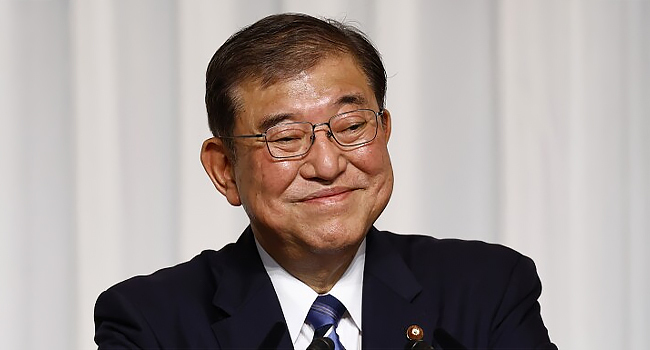Japan’s Prime Minister, Shigeru Ishiba, plans to introduce a new “happiness index” during his first major policy speech in parliament, according to reports from local media. The new index, which is expected to be developed through collaboration between public and private sectors, will align with Ishiba’s focus on addressing key challenges, including economic reforms and Japan’s shrinking population.
Ishiba, 67, officially became prime minister after winning a competitive leadership race within his party. To strengthen his position and gain support for his policies, Ishiba has announced plans to call for a snap election on October 27. His policy agenda includes providing more support for regional governments and offering financial assistance to low-income households.
While it’s unclear how his speech will tackle foreign policy, local outlets, including NHK, have suggested that the prime minister will reaffirm his commitment to controlling inflation and introduce a new monetary stimulus package aimed at supporting the economy.
Ishiba’s leadership saw an initial surge in the value of the yen, following his endorsement of scaling back the Bank of Japan’s lenient financial policies. However, after indicating that further interest rate hikes are not on the table at the moment, the currency experienced another dip.
Among other plans, the prime minister is expected to announce a goal of raising Japan’s minimum wage to 1,500 yen (around $10.22) by 2030, up from the current 1,055 yen. This wage boost is part of his broader vision to improve overall well-being and boost Japan’s per capita GDP.
Addressing Japan’s aging population, which he refers to as a “silent crisis,” Ishiba is likely to emphasize its impact on the country’s future. He will also propose launching a new disaster management ministry, an essential step for a nation vulnerable to earthquakes and floods.
Nuclear energy is another key topic Ishiba is expected to touch on. While the business community largely supports nuclear power, the Japanese public remains cautious after the Fukushima disaster in 2011.
Takahide Kiuchi, an economist and former Bank of Japan board member, commented that Ishiba’s speech is likely to focus on securing his government’s position in the upcoming general election, with policies aimed at consolidating power and addressing pressing national issues.
